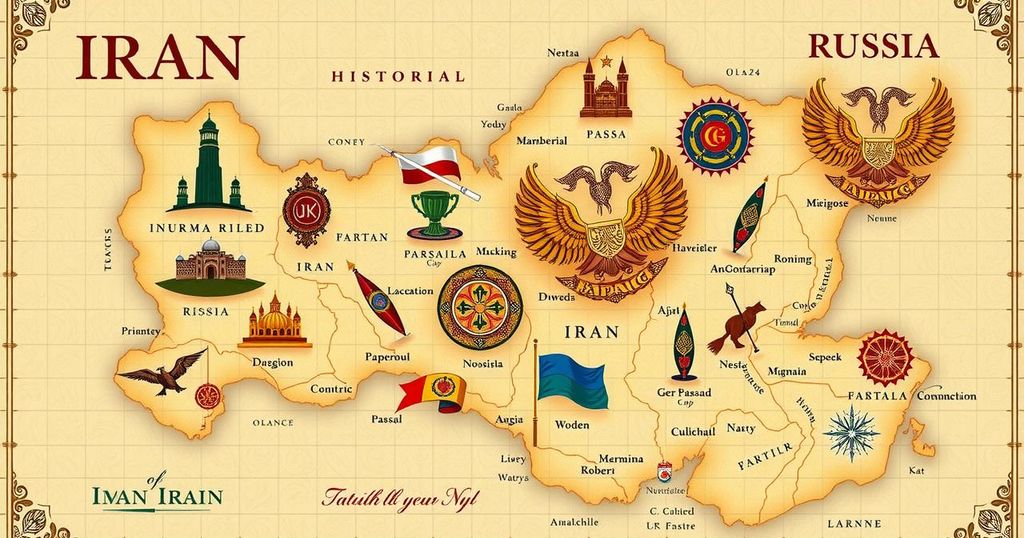World news
EUROPE, EUROPE/ASIA, FATEMEH MOHAJERANI, INTERNATIONAL RELATIONS, IRAN'S PRESIDENTIAL ELECTION, MIDDLE EAST, MOHAJERANI, MOSCOW TIMES, PROSECUTOR GENERAL ' S OFFICE, PUTIN, RIA, RUSSIA, SANCTIONS, SOVIET UNION, THE MOSCOW TIMES, UKRAINE, VLADIMIR PUTIN, WAR, WESTERN SANCTIONS
David O'Sullivan
0 Comments
Iran Prepares for Upcoming Visit by Russian President Vladimir Putin
Iran is preparing for a visit by Russian President Vladimir Putin, as confirmed by government spokesperson Fatemeh Mohajerani. The visit comes after previous talks with Supreme Leader Ayatollah Ali Khamenei in 2022. Relations between Iran and Russia are historically complex, especially following a recent strategic partnership and weapons deals since the Ukraine conflict. However, the partnership lacks a mutual defense clause, indicating cautious but strengthening ties.
Iran is in the midst of preparations for a visit by Russian President Vladimir Putin, according to Fatemeh Mohajerani, the spokesperson for the Iranian government. The news was reported on Monday by RIA, a state-run news agency in Russia. However, there has been no immediate reaction or comment from the Kremlin regarding this announcement.
This forthcoming visit is notable, especially following Putin’s last engagement in Iran in 2022. During that visit, he met with Supreme Leader Ayatollah Ali Khamenei, marking his first journey outside the former Soviet Union since initiating a full-scale invasion of Ukraine earlier that same year.
The relationship between Tehran and Moscow has evolved significantly over time, particularly in light of recent events. Earlier this year, both nations solidified their ties through a strategic partnership agreement, spanning a period of 20 years, which comes amidst Moscow’s arms acquisition from Iran for its ongoing conflict in Ukraine.
Historically, the ties between Muscovy and the Persian Empire date back to the 16th century, but the relationship has not been without its strains. Iranian officials claim that while Moscow projects a strong front, it remains cautious about becoming entangled in a substantial war in the Middle East, notwithstanding its military involvement in Syria that began in 2015.
Interestingly, the strategic partnership between Iran and Russia lacks a mutual defense clause, a stark contrast to agreements that Russia has enacted with other nations. This absence raises questions about the depth of their alliance in potentially volatile regional dynamics, though both sides appear committed to enhancing their cooperation in other areas.
Meanwhile, the context in which this visit is happening is crucial. The Moscow Times has highlighted challenges faced by independent journalism, noting recent governmental actions declaring the organization “undesirable.” This designation places The Moscow Times in a precarious position, emphasizing a broader trend of pressure against media entities in Russia.
These developments signal a complex interplay between international relations and domestic policy, particularly in light of their implications for the media landscape in Russia and the continuing geopolitical tensions surrounding this burgeoning partnership.
As Putin prepares for this significant visit to Iran, it will be crucial to monitor how these discussions evolve and what implications they might hold for both regional stability and bilateral relations going forward.
In conclusion, preparations for President Vladimir Putin’s visit to Iran underscore the deepening ties between Tehran and Moscow, characterized by a long, albeit complicated history. As both countries navigate their partnership amid geopolitical challenges, it is essential to remain vigilant regarding the implications of such engagements on both a regional and international scale. The situation also reflects broader themes of media suppression in Russia, highlighting the precarious state of journalism in the country.
Original Source: www.themoscowtimes.com




Post Comment